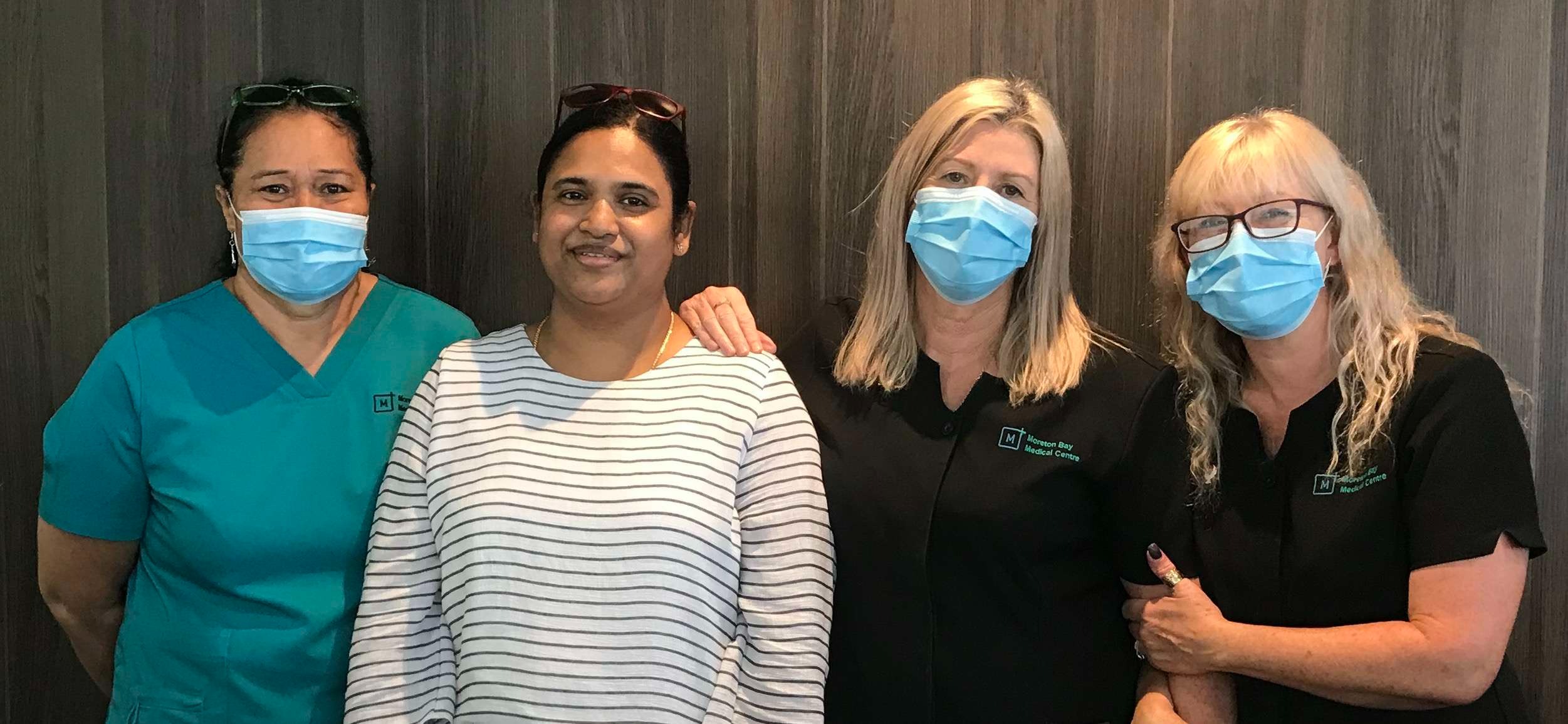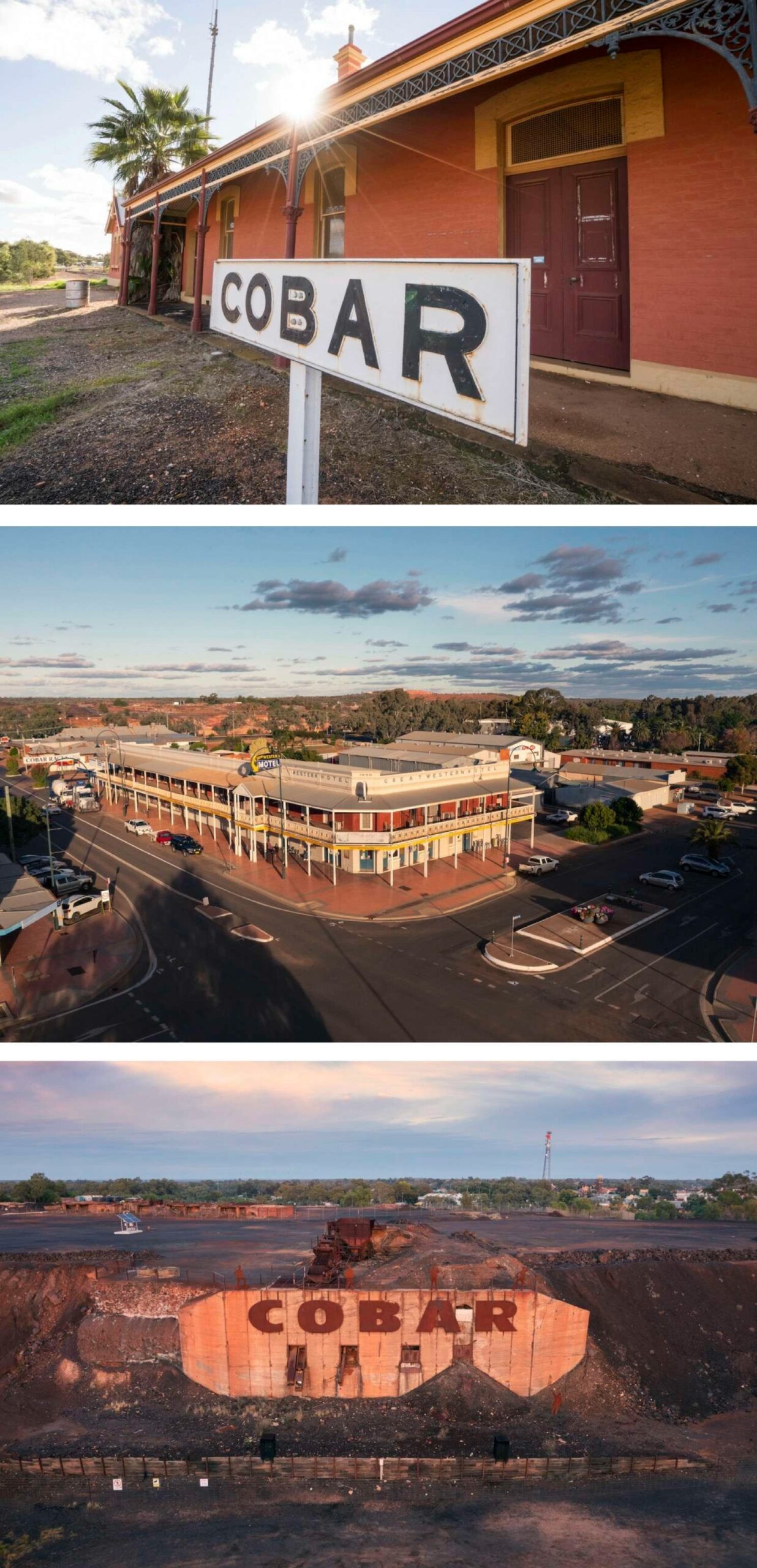RVTS alumni, Dr Sirisha Potti, had an adventurous start to her medical career, working as a doctor with the Indian Army in counter insurgency operations in the troubled regions of Jammu and Kashmir.
The change after arriving in Australia could not have been starker for her, swapping a conflict zone for a quiet town in a remote part of NSW, writes Patrick Daley.

I am speaking with Dr Sirisha Potti during the recent Queensland floods – it has been pouring rain, and she’s worried about the current situation.
However, she is such a warm and friendly person that she can’t help but smile during the whole Zoom interview.
Sirisha currently lives and works in suburban Brisbane, but has kept a close connection to Cobar in central-west NSW, where she and her husband, Dr Vamsi Arvapalli, worked as doctors for nearly seven years after moving there in 2011.
Growing up in a small town in Southern India, her future career as a doctor in Australia – let alone in a remote town like Cobar – was the furthest thing from her mind.
“I had a humble family life, and always knew that I wanted to help people” she says.
“I had a religious upbringing and initially wanted to become a nun, but my parents and grandmother said that if you save a life that’s the best service you can do for someone – so ultimately I chose to study Medicine.
“I was the first girl in my family to go to university in person. My aunts had studied their Masters via distance education.”
Sirisha undertook her medical studies through the Indian Army, and had the option to pay her way out or join the Army as a fully commissioned officer – she chose the latter.
Her first posting was to a remote Army camp close to the Kashmir and Indian border – an eye-opening experience for the junior doctor who had just finished her internship.
“It was quite confronting” she says.
“There were a lot of terrorist campaigns going on there, so we did a lot of trauma work…and as a junior officer I got to do the hard miles. I realised the value and importance of working in a team setting, and appreciated every moment of it.
“We’d go out in platoons to scour the jungle for militants. It’s a very dense part of the jungle, so we would go with an ambulance and stay at the road-head. If anything happened we would either treat the patient there, airlift them or take them by ambulance to the nearest hospital.
“As doctors, we were also the friendly face of the Army and would organise outreach camps as goodwill initiatives with the local communities.
“At that stage I was the only female doctor at the posting, so I did a lot of women’s health work.”

Sirisha’s most memorable moment came after a half day trek to provide a remote medical outreach camp.
“When we finally got to this remote village, it felt like a country fair was on. The locals had lots of music and activities organised, and I later found out it was all because everyone was excited about our medical camp and the fact that a female doctor was visiting.
“I was the first female doctor to visit that village in the 60 years following Independence.
“One lady who was almost seven months pregnant had trekked one-and-a-half hours over difficult, hilly terrain to get to us. I had only basic equipment – I didn’t even have a Doppler – so all I could do was a basic antenatal check, take her blood pressure and do an examination.
“But she felt so happy I could at least do that.
“Maternity care at the time in remote villages was still very rudimentary and relied on local women who had done some deliveries, so it was quite scary. But it cost a lot of money to go to the nearest town to give birth, so most women chose not to.
“What I experienced at that remote camp made me feel more humble about life – you value everything you’ve got.”
The move to Australia
Sirisha had always been interested in general practice as a career but was also interested in ophthalmology and obstetrics and gynaecology.
However, training in these fields through the Army required 15 years return of service, and by that stage she was married with a child and her husband Vamsi was already in Australia. She moved to Australia not long afterwards.
“I was very sorry to leave the Army, but Vamsi had taken up a career in Australia and I had to make a choice” she says.
“I worked for a short time at the Peninsula Hospital in Melbourne, before we moved to Cobar.”
She fell in love with the town and the practice.
“But initially I was shocked at how quiet everything was – even the birds fell silent after 5pm!

“We had planned to only go to Cobar for a year, but ended up staying there much longer. The pristine climate meant there was no need to check the weather – it was always the same – and we had kangaroos in our front yard.
“It was beautiful in its own way.
“We only moved to Brisbane in order for our daughter to access high school more easily, but we would have stayed in Cobar otherwise.”
The transition to Brisbane was difficult, and Sirisha and her husband deeply felt the loss of community.
“For the first six months I kept calling people back in Cobar” she says.
“They found it funny that I was still calling them – but I felt so isolated in Brisbane despite the hustle and bustle, and felt I’d left my soul back in Cobar.
“I still feel a lot of belonging there to be honest. We made a lot of very good friends there.
“Like those who live in rural India, rural Australians are very straightforward, welcoming and trusting. I like that simplicity and honesty of rural people – I would say it’s the true essence of Australia.”
And along came RVTS…
Sirisha and Vamsi had been working in Cobar for three years before they found out about RVTS by accident.
“We had a new colleague arrive in town who happened to be on the RVTS program” she says.
“He told us about the benefits of RVTS – that you could stay in your location, have your own dedicated supervisor, and undertake your GP training without having to uproot your family.
“I had been getting very depressed about GP training and the need to move locations regularly, so to hear about RVTS as a training option was a blessing.
“Vamsi and I ended up training through RVTS at the same time, which was wonderful.
“Our ability to train with RVTS was great for Cobar too, as we could stay there longer than we otherwise would have been able to with other GP training options – this was especially valuable because I was the only female GP in town.
“The warmth and inclusivity of RVTS made both of us feel very welcome – and we loved being able to go as a family to the face-to-face workshops. They were not just great for the medical training but also for the social interaction with other doctors and their families.
“As International Medical Graduates working in rural Australia, we found this connection particularly beneficial.
“My supervisor, Dr Claire Cupitt, was fantastic too – she not only helped me professionally but was an amazing support on a personal level, which I found very helpful in getting through my exams.
“I’d also like to especially thank RVTS CEO, Dr Pat Giddings, for his ongoing support to the GP registrars training with RVTS – and all the RVTS support staff who are heavily involved in co-ordinating the weekly education activities and six-monthly conferences.
“They are the backbone of the organisation.
“I had wonderful co-ordinators for my cohort, starting with Debra Hargreave and then Jane Delaney. They were both so lovely and supportive in more ways than I can say.
“It is a privilege to be a part of this family.”
After moving to Brisbane, Sirisha worked in a practice in the middle of the city before moving to a suburban practice at Moreton Bay.
“My current practice at Moreton Bay is a bulk-billing practice and has more of a small town approach – our patients are very welcoming and straightforward, and they value our service” she says.
Outside her medical work, Sirisha has a strong interest in food security and homelessness, and has been doing some small-scale voluntary work.
“Not wasting food is a passion for me” she says.
“In the future, I would love to be involved more with charities focusing on homelessness and domestic violence. I am also very keen on doing more to prevent food wastage.”
While Sirisha is still involved with RVTS as an alumni, she says that once she gets back to a rural area she will be keen to get more fully involved again – potentially as a supervisor.
“As an alumni, I can still attend the training courses” she says. “That means there are always lots of opportunities for medical education and refreshers, and staying engaged with the RVTS family.
“RVTS has been life-changing for us – it not only helped us as individuals, but also as a family…and our community too.
“In both Cobar and RVTS, I found a community and a family.
“At the same time, RVTS also gave us a pathway to GP Fellowship – what more could we ask for?”





